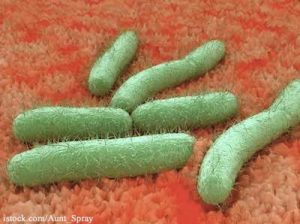A new study published in the journal Foodborne Pathogens and Disease found that there was increased recognition of non-O157 Shiga toxin-producing E. coli (STEC) infections in the U.S. during 2000 to 2010. That is precisely the type of bacterial infection linked to the recalled Farm Rich mini meal products.
 There are six serogroups of E. coli bacteria that produce Shiga toxins that food facilities and the government test for. Those toxins get into the bloodstream and can cause kidney failure, heart attacks, stroke, and hemolytic anemia. The most common and dangerous is E. coli O157:H7. The other serogroups, listed below, are less common, but can still cause severe symptoms, long term health problems, and even death.
There are six serogroups of E. coli bacteria that produce Shiga toxins that food facilities and the government test for. Those toxins get into the bloodstream and can cause kidney failure, heart attacks, stroke, and hemolytic anemia. The most common and dangerous is E. coli O157:H7. The other serogroups, listed below, are less common, but can still cause severe symptoms, long term health problems, and even death.
The study states that STEC infections are an important cause of diarrhea and a major cause of hemolytic uremic syndrome (HUS). Changing laboratory practices are giving public health officials more ability to recognize these pathogenic bacteria in outbreaks. During 2000 to 2010, FoodNet sites reported 2006 cases of non-O157 STEC infection and 5688 cases of O157 STEC infections. The number of reported non-O157 STEC infections increased from an incidence of 0.12 per 100,000 population in 2000 to 0.95 per 100,000 in 2010. AT the same time, the rate of O157 STEC infections decreased from 2.17 to 0.95 per 100,000.
The most commonly reported serogroups are O26 (26%), O103 (22%), O111 (19%), O121 (6%), O45 (5%) and O145 (4%). The Farm Rich outbreak is caused by E. coli O121. The study also found that fewer non-O157 STEC infections were associated with outbreaks, and more were associated with international travel.
The study’s authors recommend that clinical laboratories should “routinely and simultaneously test all stool specimens submitted for diagnosis of acute community-acquired diarrhea for O157 STEC and for Shiga toxin and ensure that isolates are sent to a public health laboratory for serotyping and subtyping.” At this time, few clinical laboratories test for E. coli O121 and other non-O157 bacteria, which can result in a delay in diagnosis and outbreak declaration.




